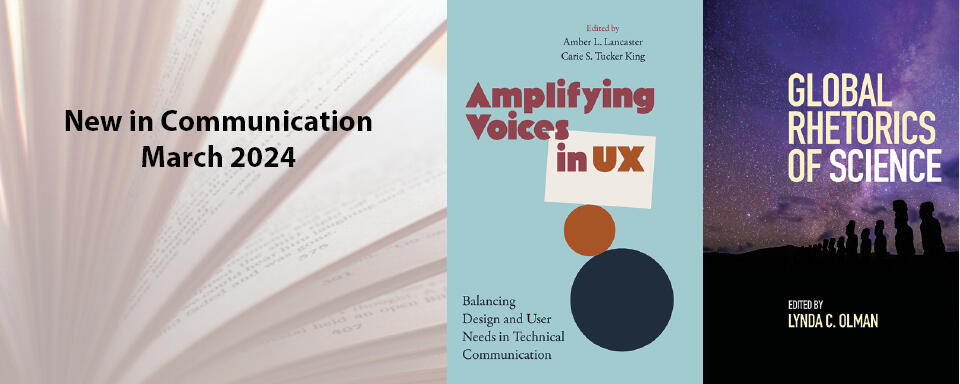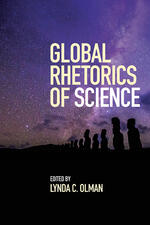
New This Month in Communication - March 2024
This March we have two new titles in our Studies in Technical Communication series, which seeks to publish work in all areas of Technical Communication broadly defined. We invite work from all areas of professional and technical communication including, both academia and industry.
Amplifying Voices in UX: Balancing Design and User Needs in Technical Communication, edited by Amber Lancaster & Carie S. T. King, explores the theme of balance in design and UX in three main areas: curriculum design that includes empathy, service learning, and design justice; design and balance for effective medical and health communication; and design to create balance in labor, social, civic, and political movements.
"Pushes technical and professional communication scholars to examine the more nuanced and marginalized issues that inherently arise in our work and our users’ everyday experiences … This collection, and individual chapters within it, would be useful for user experience courses, information design courses, ethics and technical communication or marketing, and intercultural communication." — Kate Crane, Eastern Washington University
"Takes a hands-on approach to UX approaches and demonstrates that UX can be used at various levels of practice: methodological, pedagogical, institutional, etc. The chapters themselves really shine because they are all focused on a specific set of practices and how they can be applied. They are also very diverse, however, which academic practitioners of UX need." — Guiseppe Getto, Mercer University
And new in paperback, Global Rhetorics of Science, edited by Lynda C. Olman, takes a multicultural, interdisciplinary approach to the rhetoric of science to expand our toolkit for the collective management of global risks like climate change and pandemics.
"This book is an invaluable addition to the field by exploring the rhetorical landscape surrounding scientific traditions beyond Western science, including non-Western approaches to communicating about science-related knowledge and examples of cross-cultural communication of science. The examples from the book cover cultures/peoples/knowledges from six continents and two oceans—a pretty amazing spread. This area is understudied but interest in it is booming, so the book is timely." — Lindy Orthia, Australian National University
"I cannot think of another volume on the rhetoric of science that approaches the subject from a global perspective, especially a perspective that centers indigenous knowledge and decolonial perspectives." — Donnie Johnson Sackey, University of Texas at Austin
Happy Reading!



